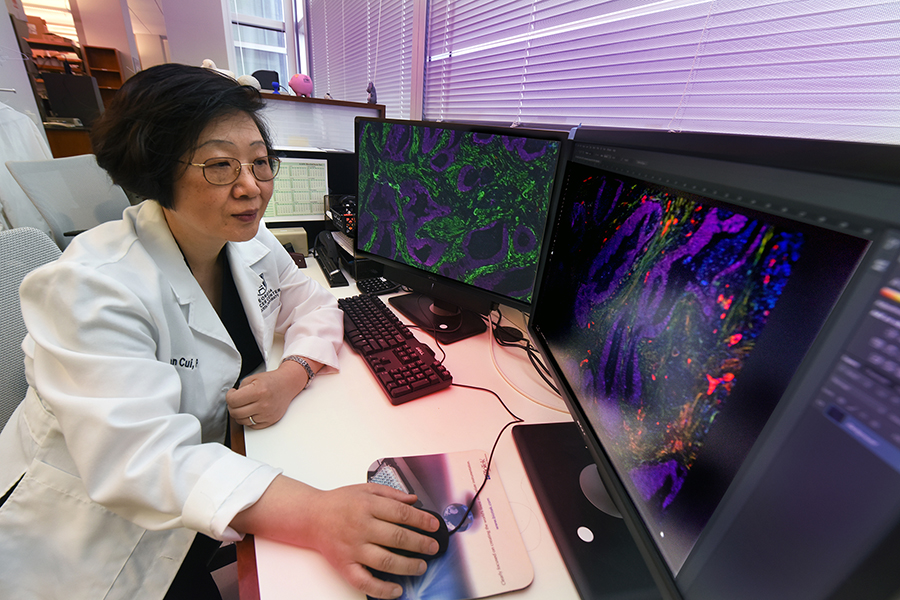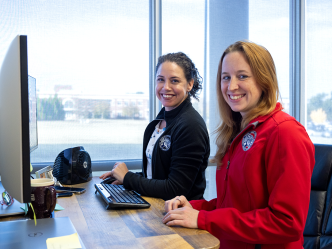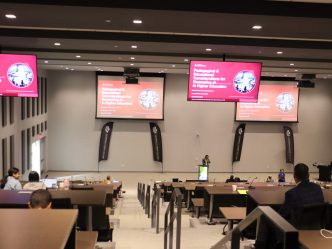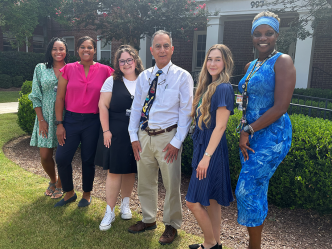According to the American Cancer Society, approximately one in five individuals will develop cancer in their lifetime. One in nine men and one in 12 women will die from cancer.
The family of Georgia Cancer Center researcher Yan Cui, PhD, is one of many affected by cancer.
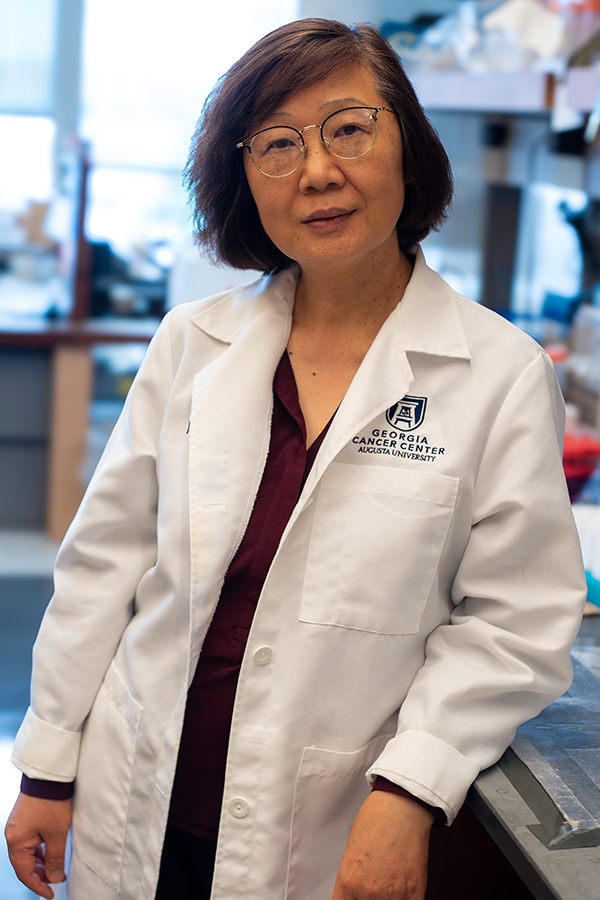
“My father died of lung cancer in China 30 years ago. As a non-smoker, the cause of his cancer was environmental pollution. The air quality was poor there. It was really affecting people’s health, and at that time there was no cure at all,” said Cui, who is also a professor in the Department of Biochemistry and Molecular Biology.
“About six months after the diagnosis, he passed away. Even now, cancer is still a deadly disease, taking so many lives and affecting almost every family.”
Cui wanted to learn more about the various causes of the deadly disease in hopes of being able to help find a cure. She began her studies in Beijing, China, where she earned her Bachelor of Science in Biochemistry and Master of Science in Biophysics, both from Peking University.
But in the summer of 1989, the first year of her PhD training at Peking, her research and study was altered when her supervisor sent her to Canada to continue her studies. A new door was opened, and she earned her PhD in Biological Sciences from the University of Alberta.
She then began her postdoctoral training under Lung-Ji Chang, PhD, at the University of Florida. Chang’s research focused on developing new lentiviral vector systems for gene therapy.
Cui followed that up by going to Johns Hopkins for her second postdoc under the mentorship of Drew Pardoll, MD, and Linzhao Cheng, PhD, where she utilized her expertise in gene therapy for stem cell transduction and developed a new approach for targeted gene delivery to dendritic cells. These results were published in the scientific journals Nature Medicine and Blood.
After completing her second postdoc training, she established her own lab in New Orleans and considered New Orleans her first “home” in the United States.
“As I moved up the ladder of my career development, I had friends at the Medical College of Georgia (MCG) in the immunology program, and I knew about the very strong immunology program co-led by Drs. David Munn and Andrew Mellor. Knowing that my research program would further expand and benefit from collaborating and learning from the great scientists, I was happy to join MCG and make Augusta my second home in the United States,” Cui said.
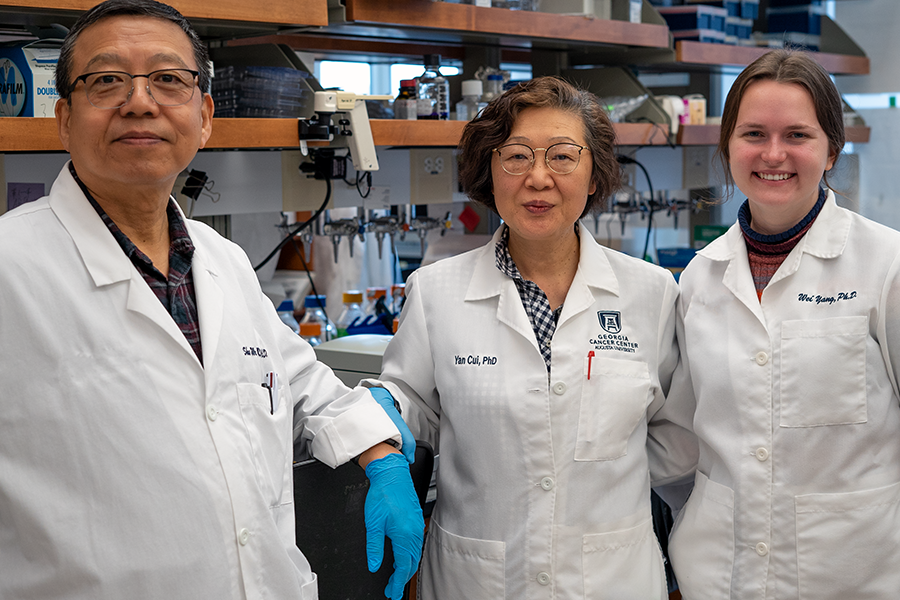
Cui has been at the Georgia Cancer Center for 10 years now and is a tumor immunologist who studies the complexity of tumor microenvironments and how cancer-associated fibroblasts enforce immunosuppression, thereby promoting tumorigenesis and tumor progression.
“We are trying to understand how the immune system effectively finds and kills the tumors and, on the other hand, how tumors exploit various means to evade immune surveillance. Having a better understanding of this will help us to develop more effective therapeutic strategies to help patients,” Cui said.
The current research projects in the Cui lab are supported by funding from NIH/NIDCR, Paceline and GCC ShRAP mechanisms.
Over the years of establishing her lab and expanding her research area into head and neck cancer, she has enjoyed the interactions with great research scientists, clinicians and members of the Core facility. She is also grateful for the productive collaborations with Huidong Shi, PhD, and Zoya Kurago, PhD, the head and neck cancer surgical team led by Kenneth Byrd, MD, and the GCC Tumor Bank team led by Roni Bollag, MD.
“Throughout scientific endeavors, it’s never a straight line. Sometimes you have excitement, but quite often you have negative results, negative outcomes and discouragements. You don’t see the light, right? You feel like you might be facing a dead-end or walking in circles, but don’t get discouraged; be open-minded,” said Cui. “I think it’s important to reflect with faith and find a solution that can overcome the hurdles in moving forward. Persistence and encouragement will help us go through the valleys.”
 Augusta University
Augusta University
